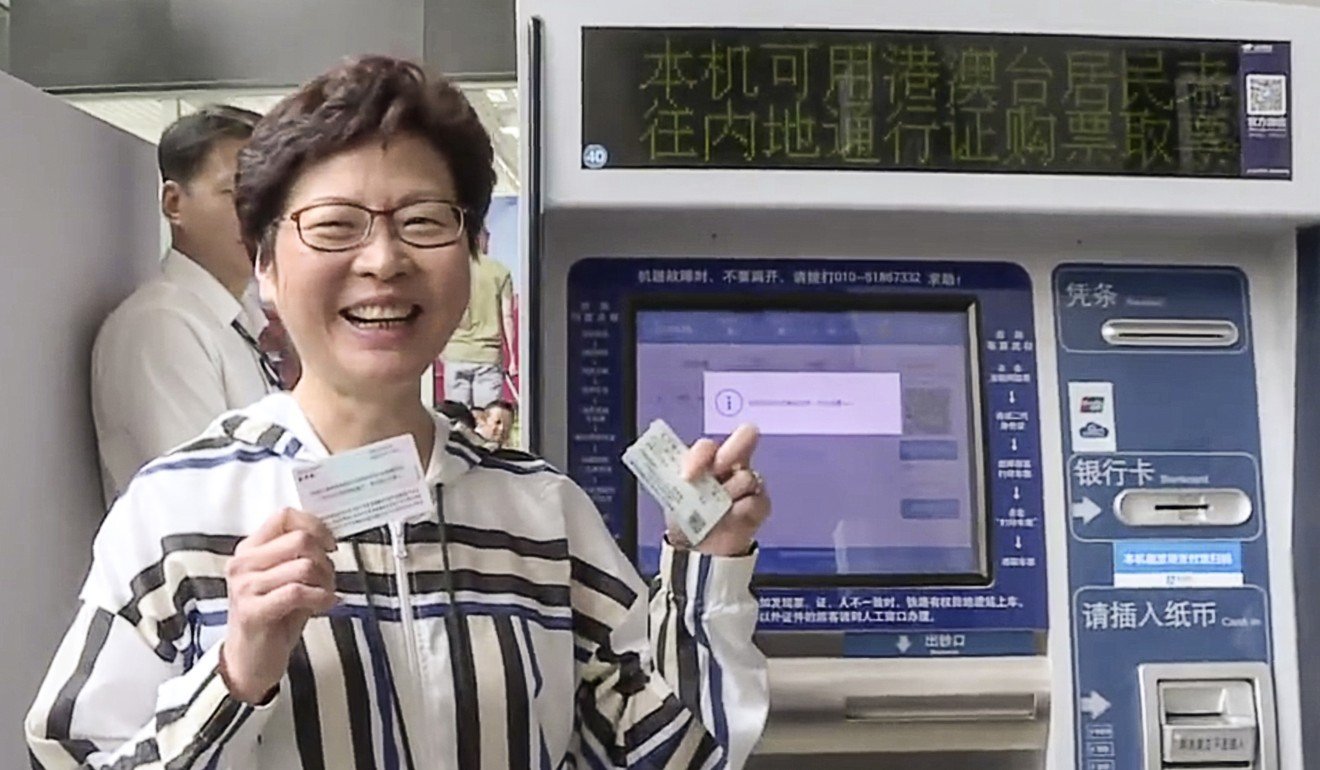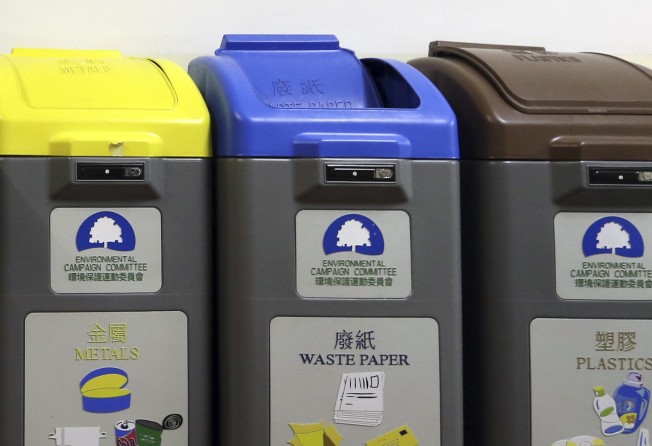
Online Letters, September 5, 2017

Recycling message is still not getting through to a lot of people
I am writing in response to the article on recycling (“Hong Kong is misusing its public recycling bins, green group says”, August 31).
It is very discouraging to find out that just 40 per cent of the items in a four-in-one recycling bin are actually recyclable. As a person who adopts the habit of sorting recycling materials, this news really annoyed me. The article said 16 per cent of the items in the bins were just garbage. I believe not all of these items were mistakenly disposed of in the recycling bin. Some ill-mannered citizens or tourists evidently neglected the significance of sorting recyclables from rubbish.
Their selfish acts led to the contamination of other possibly recyclable items, sending every item in the bin to the landfill. Their irresponsible thinking just killed the thoughtfulness of the others.
Even when the municipal waste-charging policy takes effect, such incidents will still continue, unless thorough public education is undertaken.
Granted, practising a new habit is hard, not to mention implanting an environmentally-friendly mindset. The government, as the biggest authority of Hong Kong, should sound frequent warnings about how urgent the waste problem is. When citizen are well-informed about the waste crisis, I will become more concerned about recycling, and so show more civic sense when disposing of waste.
Cathleen Shek, Tseung Kwan O
Hong Kong graduates can travel far on ‘belt and road’
I refer to the “One Belt, One Road” initiative and benefits it may bring to Hong Kong graduates.
There is no doubt that this Beijing-led scheme bring us advantages on account of closer connection with Asian countries. It makes travel to and doing business with other Asian economies easier and more convenient. This gives Hong Kong graduates another option on choosing which university to go to or where to start their career.
Once I graduate from high school, I can enjoy the freedom of choosing my study path overseas or continuing my study in local universities.
Jackie Lo, Po Lam
City should learn family values from Sweden
I am writing in response to Katrina Lo’s letter (“Hong Kong working mothers need more help to find right work-life balance”, August 12).
Lo says that mothers in Hong Kong are challenged by the long working hours and lack of workplace flexibility. It leads to a social phenomenon where some office ladies who are married are worried about having a baby. Short maternity leave and difficulties in breastfeeding are the main problems.
Hong Kong allows only 10 weeks of maternity leave. New mothers may lack the time to take care of their newborn if they have to be back at working within such a short time. Also, new mothers suffer a lot of pressure if they have a heavy workload in the office and have to take care of a baby at home. They have little time to rest, so some of them may be prone to depression.
Some countries, such as Australia and Sweden, which also have a high female working population like Hong Kong, have more family friendly measures in place. Sweden has been called the country with the best maternity leave policy. Couples in Sweden enjoy 16 months of maternity leave with a salary, and there are lots of allowances for the family.
The Hong Kong government should learn from other advanced regions and extend the maternity leave. Besides, they can provide free family counselling services, to help new mothers maintain a good work-life balance.
Winny Lai Man-ting, Kwun Tong
Twin typhoons are a wake-up call on climate change
Recently, two strong typhoons hit Hong Kong. The storms brought tremendous damage to villagers living in coastal areas, such as Tai O. The tsunami-like waves destroyed homes during Severe Typhoon Hato on August 23.
The process of cleaning up the mess is always long and arduous. So the government can review flood-prevention measures, and also the post-typhoon clean-up operation.
People had trouble crossing streets in inundated villages, and there was trash everywhere. Thankfully, there were big-hearted volunteers helping to clean up the mess. But the settlement of the villagers is still a big concern due to some homes being damaged.The government provided places for the affected villagers to sleep, as their homes were destroyed and they had no place to rest.
However, it will never be enough for just the government to help. Ordinary citizens must also pitch in, maybe by cleaning up the trash as a volunteer, or even spread the message among friends and family that people need help.
This issue is also related to climate change, which is causing more extreme weather, and stronger storms around the world. It may sound tiresome, but it is important to repeatedly promote the importance of a green lifestyle, because people don’t seem to have yet understood how serious the problem is. This is not just for us, but also for the future generations.
Natural hazards are taking place more frequently. If we don’t make a change, imagine how hard life will be for our future generations.
Everyone in this world has the responsibility to make this planet better, a small change from everyone will make a big difference to the world.
Michael Ke, Tseung Kwan O
Always take sensible precautions when storms hit
The damage that was brought to Hong Kong and Macau last month by two typhoons was in some cases shocking.
I hope these storms have raised levels of awareness and made us realise that when signals are hoisted by the Observatory we must heed the advice and take the necessary precautions. Our priority should be ensuring our own safety and ensure we are protecting ourselves and our families.
Firstly, we must make sure all windows are closed securely in our flat, because they could be damaged by strong winds if they are left open. If a window is damaged residents could be injured by broken glass. As the storm strengthens we must all, where possible, stay indoors.
Also, I do not think it is responsible to, for example, call for a food delivery. The person making the delivery could be injured on the road, especially if it is a high typhoon signal with strong winds. You should not expect others to risk injury unless it is an emergency.
The number of people sustaining injuries or death can be reduced if we all try to act responsibly.
Cindy Wong, Po Lam

Upgraded ticket machines can have benefits
I refer to the report (“Hong Kong leader Carrie Lam shows upgraded ticket machines at mainland railway station in Facebook video”, August 31). I agree that the upgraded ticket machines at some rail stations in the country, including Beijing, can bring benefits.
Hongkongers in mainland cities wishing to return to the city or to go to another mainland location, have had to join long queues in the past and buy them at the ticket booth. And because the queues are often long, people spend a lengthy period before they finally get their ticket.
Once all these ticket machines have been upgraded, Hongkongers will be able to buy tickets by scanning their home return permits and this can avoid these long queues. I think this new arrangement is excellent. Employees selling tickets at counters, can then be redeployed to other duties by the railway operators.
Rachel Leung Hiu-lam, Kwai Chung